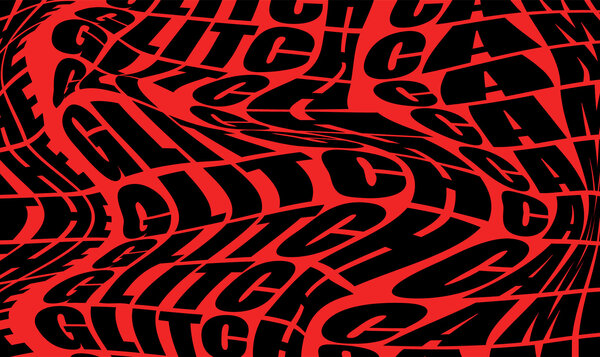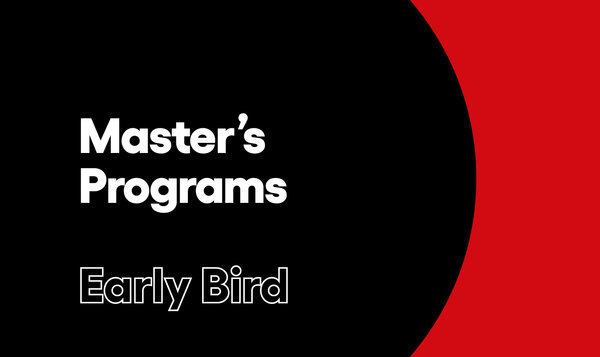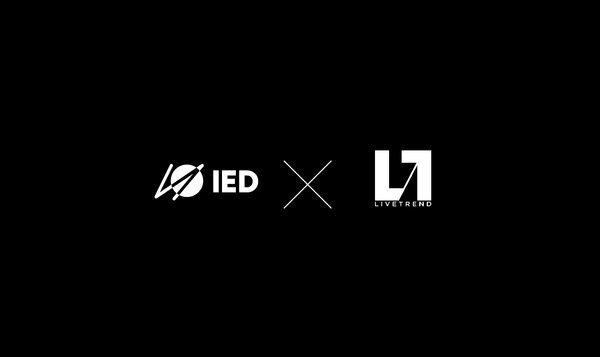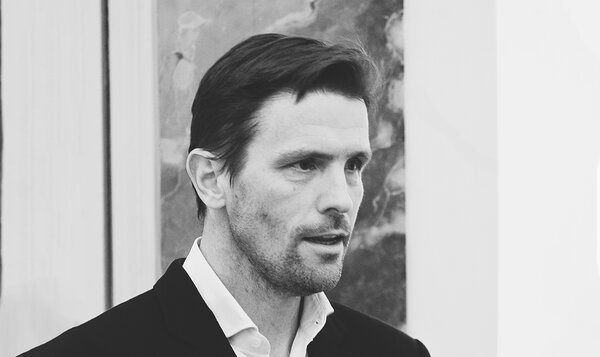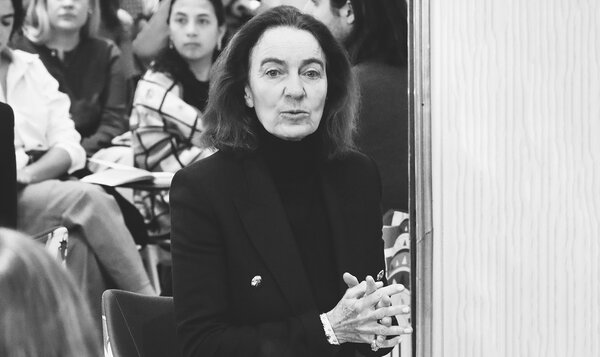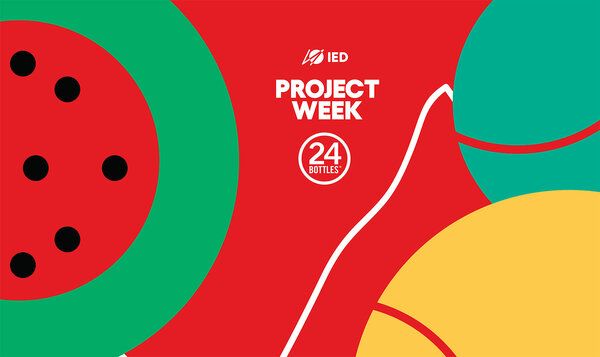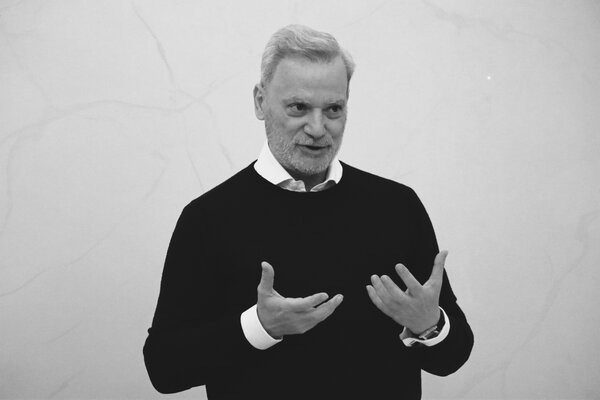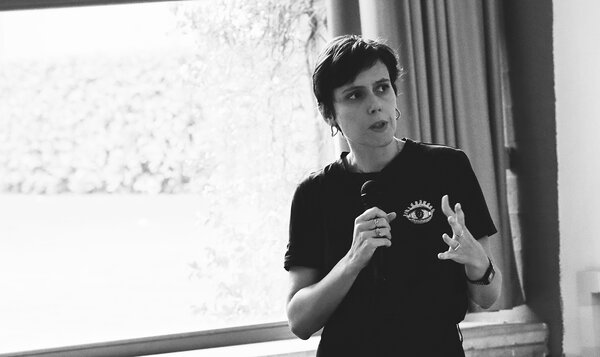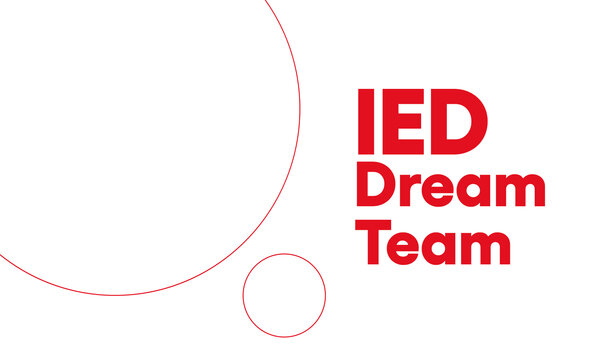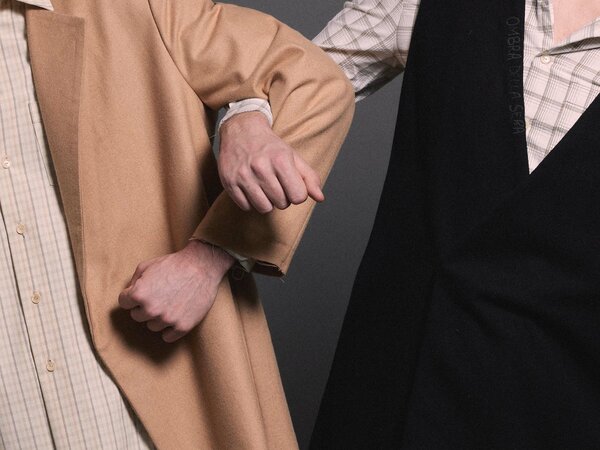"We're in a moment of great opportunity, crisis, change, and confusion. The saturated market leads brands to make unremarkable, irrational, and uncreative strategic choices. Technology may bring a revolution..."
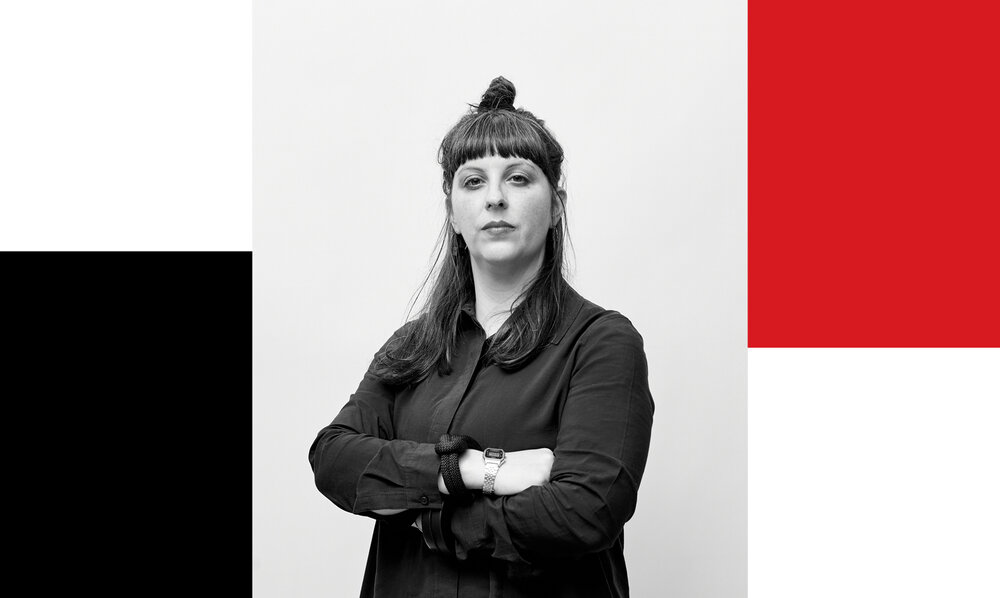
Meet the faculty: Giulia Massarenti
Date
23 June 2023
Giulia Massarenti, professor at the Master Course in Fashion Business, with the Mentorship of Margherita Maccapani Missoni, is a freelance PR for few niche avant-garde fashion brands that are presenting their collections at Paris Fashion Week, like Geoffrey B. Small and Un_namable. She has worked for Vogue, Vanity Fair, GQ, Ralph Lauren, Safilo and many more.
Let's find out together her vision about the communication, the fashion industry and the relationship between publishing and fashion.
Could you tell me a little bit about yourself and your job?
I am based between Padova, Milan and Florence. I graduated in modern literature at the University of Padua and later on I did a master in Fashion Journalism and Communication at the Universidad Carlos III, in Madrid. I started my career in fashion as a stylist assistant at Vogue Spain and then I continued organizing Fashion Photography Exhibitions and creation Fashion Books for Vogue Spain, Vanity Fair and GQ. After two years in Madrid I moved to Tokyo to work for Japanese Vogue, and then to London to work for Katie Grand at Love Magazine as a stylist. After the first years in fashion magazine, I started to work as a PR, first in London at Ralph Lauren and then in Madrid again, for Safilo the second biggest eyewear producer worldwide. In 2018 I moved back to Italy where I started to work for International Talent Support in Trieste (the contest that launched Matthieu Blazy of Bottega Veneta, Richard Quinn, Cecile Bahnsen, Nicolas Di Felice at Courréges and Demna Gvasalia at Balenciaga).
What does it mean to be an expert of communication nowadays?
We're in a moment of great opportunity, crisis, change, and confusion. The saturated market leads brands to make unremarkable, irrational, and uncreative strategic choices. Technology may bring a revolution, challenging leading print magazines. Some see the negative sides of the digital revolution, with excessive social media power and content-less marketing. True creativity and talent suffer, compensated by communication and marketing efforts. Being a communication expert requires flexibility, research, and adaptability, especially in the commercial industry. Continuous knowledge expansion across adjacent sectors is crucial. Brand storytelling remains key, despite rapidly changing tools and players. In the luxury niche, we focus on an excellent, handcrafted product using exclusive Italian materials. Communication centers on the value, research, and art behind it, not relying on celebrities or events. Many brands prioritize other aspects, lacking vision and bringing negative consequences in fashion.
What artists, writers, academics, curators and other creative thinkers have influenced your practice as a communicator and curator?
My fashion journey began with a classic training at Condé Nast, where Vogue Italia and influential photographers like Meisel and Lindbergh shaped my early experiences. I drew inspiration from esteemed journalists such as Piaggi and Casadio, as well as the creative direction of Stoppini. Working in the Exhibitions and Books department at Condé Nast Spain exposed me to the archives and the works of Vreeland, Snow, Lieberman, and others. As my career progressed, I explored beyond Condé Nast, embracing the works of Brodovitch, Baron, and Carson, and delving into underground titles like The Face. Alongside fashion, my passion for art and literature thrived, with artists like Bosch, Duchamp, and Rauschenberg captivating me, along with influential Italian critics. In literature, the revolutionary language of Apollinaire, Marinetti, and Joyce deeply influenced me. In recent years, I've been drawn to independent journalists who exercise critical thinking, such as Rabkin, Aronowsky Cronberg, and Pourashemi, as well as Flaccavento in Italy. I admire the contributions of Steele, Arzalluz, and Saillard, and the enduring legacy of Louise Wilson. My mentors, Smith and Krell, have played a vital role in shaping my approach to work and research, despite our limited interactions.
Could you tell us about how you build relationships with the people you select for your collaboration? How do you approach these relationships?
I am trying as much as possible to work with people that are sharing my same values and my same vision, especially for works and projects related to the fashion industry. I think when you start to work in a very specific environment like the niche segment, is very difficult to go back to more commercial standards. I like to collaborate with people that are passionate and fearless, that are not scared to be open about their ideas and their tastes, even if they are completely against the status quo. In most of the cases, I feel like I am part of a group of “outsiders”, people with an uncompromised attitude, that are avid researcher and that will never cease to say what they really feel about everything they see around, no matter what. That courage, that devouring passion, that same connection with real talent and creativity, the willing to propose an alternative vision of fashion, much more connected with art and culture is the key that is driving all my choices. I am lucky enough to work for brands that are allowing me to have this approach. Being able to think differently and be able to express it is such a privilege in today’s fashion industry.
How do you balance your personal taste and point of view with objectivity?
To be honest, I am not sure I am always objective, but this is not a problem for me. I trust my personal taste and I respect the one of other people even if it’s different from mine, but I am no longer able to refrain from expressing my personal opinion anymore. What I learned, being a PR, is the fact that I always need to be polite and diplomatic, but I never lie about my personal preferences. If there is something that is very far from my taste, I learned to express it in a way that is extremely respectful and constructive. On another level, it’s not always possible to develop just the solutions that are connected with my personal preferences, so in a lot of cases I have to make compromises and I have to challenge myself to develop a vision that is not exactly what I would have preferred to develop, and that is completely fine with me. Being flexible and be ready to accept all the challenges is part of the job of the PR. But, if there is something that is not coherent with my taste, I always try to express it, but in the most gentle and polite way possible. It’s always about developing a conversation and an exchange of visions and points of view that is based on mutual trust and freedom of expression. In a lot of cases, my vision is not the one which will be accepted for a project or for a strategy, and I am ok with it. I can work on something that is not exactly in line with what I proposed, but what I cannot avoid to do, is to develop a dialogue on it as a starting point, to defend my personal ideas and my proposals. Obviously, not all the sectors or positions allows you to work like this. What is crucial to me is to be able to develop a very personal point of view and to always express it, until it’s polite enough and properly explained in detail. We need much more plurality of different voices and ideas.
Your vision of the future of fashion.
The future of fashion calls for a transformative shift in vision, production methods, consumption, and ethics. Urgently, we need collective efforts, including political involvement, to combat the destructive practices of fast fashion and the overproduction pursued by luxury brands. It's crucial to address the abundance of poorly made products with embarrassing aesthetics. Society must be re-educated, teaching both children and adults to read labels, understand garment origins, and make conscious purchasing decisions. We must buy less and take action. Finger-pointing should extend beyond Zara to the conglomerates that exploit third world countries while masking their actions with celebrity-driven advertising campaigns. Serious discourse should focus on talent, quality, and competent designers, rather than follower counts. Singers should stick to singing, allowing skilled creative directors to handle fashion collections. Brands must stop exploiting creative directors for profit gains, devaluing their skills and discarding them when no longer useful. Equally important is providing more space and opportunities for young creatives, which demands a resounding demand, especially from those within the educational sphere. To prevent shallowness and maintain the beauty of fashion, we must initiate a revolution promptly and avoid reducing it to banality.
